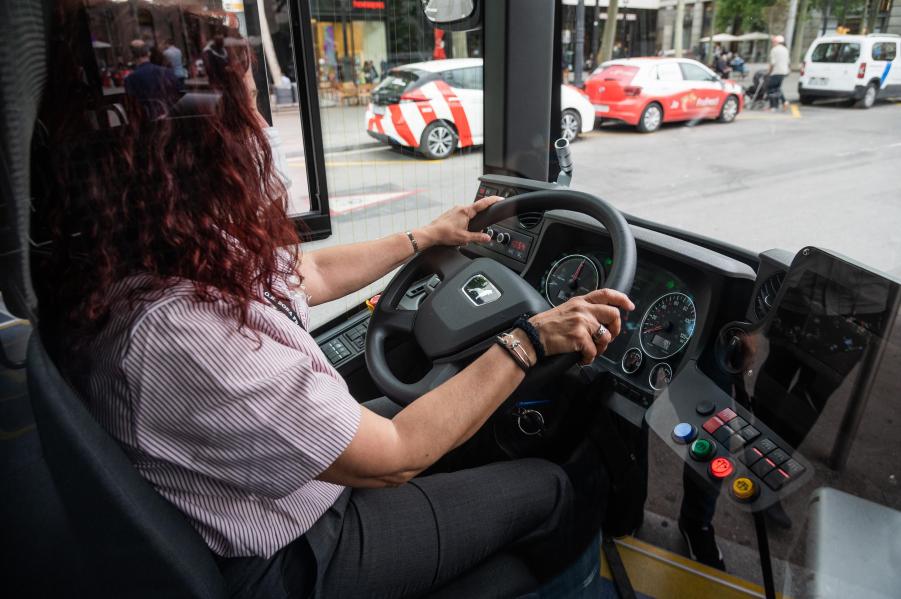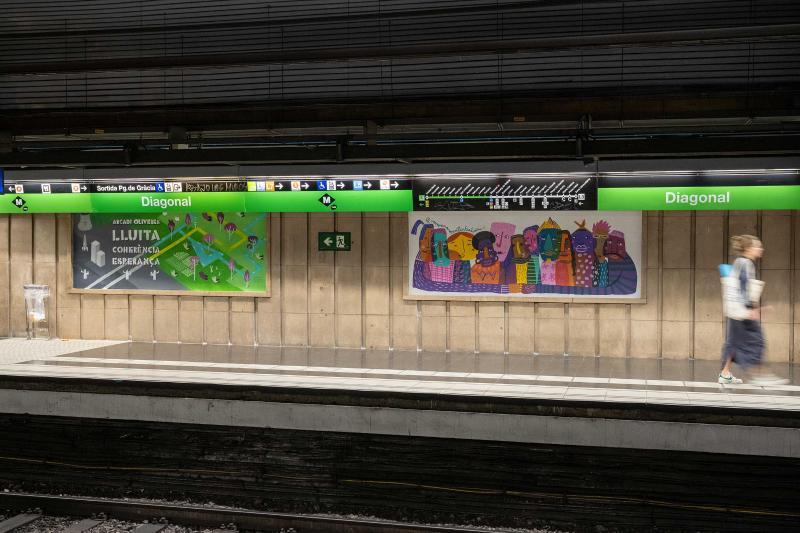Barcelona public transport company TMB pushes ahead with plan to prevent sexual harassment
By Tamar Shiloh Vidon and Manuela La Gamma
When Barcelona’s public transport company, Transports Metropolitans de Barcelona, or TMB, was talking to the European Investment Bank about loans to renew its rolling stock and acquire electric buses and charging infrastructure for Barcelona, it turned out there was another problem that needed solving. In developing its social responsibility and equal opportunity policies, the company, like many other transport companies, had to address the question of how to prevent sexual harassment and discrimination on its networks.
“Our original plan only involved measures to prevent harassment directed specifically at women,” says Raquel Diaz, TMB’s director of social responsibility, women and diversity. “That plan evolved, incorporating specific measures to combat LGBTIQ+-phobia within public transport networks.”
With funding from the InvestEU Advisory Hub, EIB Advisory experts and a team of mobility and gender experts from Spain, Portugal and Germany, stepped in to help TMB boost implementation of the plan and define indicators to measure its impact.
“TMB had already published a sexual harassment and LGBTIQ+-phobia prevention plan,” says Manuel Pastor de Elizalde, an urban mobility expert at the European Investment Bank. “They were very advanced, but the plan was still in its early stages.”
- Read more about how to boost transport solutions for women in Spain
Building a trusted grievance mechanism
The government of Catalonia conducted a survey in 2020 which revealed that 17% of all criminal acts in the area take place on public transport, and that 60% of the victims are women. Of women between the ages of 16 and 25, 91.6% said they been harassed on public transport.
“In sexual harassment prevention projects, unlike in other projects, you don't initially want the number of reports to go down to show that bad things are happening less,” says Carmen Niethammer, senior gender specialist at the European Investment Bank. “You want the number of reports to go up and the problem to be solved.”
“We all know it’s happening,” she adds, “so the question is, how can we improve the trust in the grievance mechanism?”
EIB Advisory carried out a survey that was completed in 2023, examining the issue.

Economically beneficial
“When we think of accessibility to transport,” says Floridea Di Ciommo, the leader of the external consultancy team that worked on the project, “we always think it refers to saving travel time, or to physical accessibility, or to whether you can reach a bus stop within a few minutes. These are visible criteria. But if a person is assaulted, or if a young woman is stared at or teased or even touched, of course she avoids using public transport if she can.”
In other words, these circumstances effectively deny that woman access to public transport, and therefore access to employment, education, and health services.
The work carried out by the consultants confirmed what TMB understood early on: Preventing sexual harassment was not only a matter of social responsibility; it would also be economically beneficial for the community.
- Read more about investing to bridge the urban infrastructure gender gap
Best in class measures
TMB identified five general areas of action:
- creating more friendly, secure and welcoming spaces
- training and sensitising staff
- raising citizen awareness
- introducing educational activities in schools
- periodically reviewing action protocols with security forces and bodies
The company held regular meetings with the consultants and EIB Advisory experts to discuss the plan’s progress and next steps.
“TMB brought in their people from security, communication, emergencies, the train operators and bus drivers,” says Pastor de Elizalde, the urban mobility expert.
TMB had installed emergency buttons and cameras throughout its network in metro stations, trains and buses even before the advisory project began. The cameras are monitored in real time by security and civil protection units that are in direct contact with the police.
Another measure was to improve lighting in metro stations.
- Read more about how to boost transport solutions for women in Spain
In April 2022, TMB joined a project of Santa Coloma de Grammet, a municipality near Barcelona. As part of the project, known as puntos violetas (purple points), which served as a pilot for TMB, awareness days were organised for 400 employees who have regular contact with passengers, to help them respond to potential cases of harassment or LGBTIQ+-phobia. These purple points will be implemented in seven metro stations on days with especially heavy passenger flow.
TMB and the EU bank hope that the gender-based harassment prevention plan will serve as a blueprint for other regions, cities and transport companies. “The vision is to highlight Barcelona as the best in class,” says Niethammer. “To demonstrate that a gender-based harassment prevention plan is an investment in the community, with tangible economic and business benefits, and have all our projects in the European Union follow that model.”


